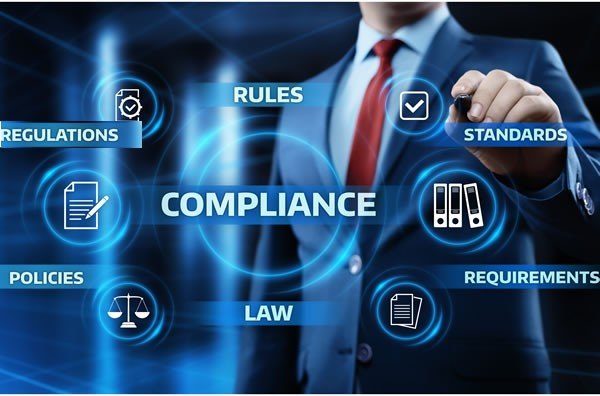Australia: Compliance Registers Transition from Obligation to Strategic Navigator

For many years, Australian organisations considered the Legal Compliance Register as a record-keeping artifact, a mere collection of documen
For many years, Australian organisations considered the Legal Compliance Register as a record-keeping artifact, a mere collection of documents, laws, regulations, and internal policies. However, with emerging privacy laws and the new organizational responsibilities on ESG reporting, the narrative seems to be changing. The register—dynamic, evolving with business needs—now plays a vital role in operational and reputation strategy.
With the advent of intelligent compliance and risk software, registers are no longer mere repositories of documents. They are situating risks within a relevant context. This is helping Australian businesses to portray compliance as a business accelerator along with steadfast conviction of resilience and corporate compliance.
🔍 Contextual Intelligence: Compliance To Beyond
The Mount legal space is dynamic. There are constant changes, and with every newly introduced rule, comes a blanket of strategy that needs to be applied. The shifts in legal regulations are almost instantaneous, making it imperative to have a keen grasp on which laws are relevant at the moment. Businesses no longer just register acts of law. A modern register establishes linkages between regulations and their impactful zones.
Contextual intelligence is now being employed by Australian companies with the aid of compliance registers that leverage advanced technologies to aid dynamic estimation of legal obligation relevance, severity, and urgency. This is a transformation from passive to proactive.For instance, a new consumer data regulation may be linked not only to the IT department, but to customer service scripts and marketing copy—automatically prompting updates and eliminating siloed interpretations.
🧭 Australia’s Fragmented Regulatory Terrain Requires Flexibility
This is particularly important given Australia’s uniquely fragmented legal landscape. Federal, state, and even local laws differ significantly, particularly in areas like environmental regulation, healthcare, and construction.
This is where the old-school register in a spreadsheet format fails. Intelligent compliance and risk software provide a single-source register to subdivide legal obligations by geospatial jurisdiction, business units, and risk categories. For example, a civil engineering firm based in Melbourne is able to monitor and act on workplace safety law changes in Victoria separately from overarching national infrastructure compliance frameworks.
It is not only operational efficiency; this enhances reputation. Regulators demand governance that adapts to the environment and not just blanket documents. Software-driven registers provide auditable, timestamped trails of decision-making, reinforcing credibility in a transparent marketplace.
🏛 Encouraging Legal Compliance Awareness Across the Organization
Legal compliance registers look to be internal narrative tools of the organization. When integrated with risk dashboards, alerts, and executive summaries, compliance registers become entwined with the day-to-day operations of the organization, shifting from legal language to business lexicon.
Newer information technology allows people without legal training to interpret legal mandates and take relevant actions. With the aid of visual aides and AI-generated summaries, higher officials can view the requirements along with additional details like the significance, the deadlines, and the possible consequences of non-compliance.
This shifts the burden of responsibility onto each individual department. Instead of waiting to be alerted by the legal teams, department leads redesign workflows, alter procurement specifications, and modify customer engagement activities to prevent non-compliance gaps and breaches.
This proactive approach not only enhances governance practices, but also ensures business sustainability and survival, especially under rising scrutiny from stakeholders.
See Also: Essential Video Editing Techniques for YouTube Creators
📈 Compliance as a Signal of Strategic Competence
The most forward-thinking Australian corporations utilize their Legal Compliance Register not as a reactive obligation, but as a proactive gauge of future developments. When calibrated adequately, it can highlight emerging risk clusters, regulatory bottlenecks, and strategic opportunities.
For example, the register can alert leaders of anticipated impacts and enable them to take proactive actions ahead of massive legislative changes. Companies that focus on mandatory climate disclosures or prepare for shifting digital identity verification mandates ahead of time demonstrate risk resiliency and showcase brand future readiness.
This paradigm shift is made possible through advanced compliance and risk software featuring automation, regulatory feeds, and machine learning that understands the interdependencies of legal obligations. This leads to a shift from reactive fire drills to proactive foresighted business strategies.
🧠 Strategic Registers Shape Strategic Conversations
Maybe the most overlooked benefit of the legal register is in informing conversations within the executive suite. More and more Board packs and risk reports come with compliance information—not just to tick the box, but to assist in framing the decision.
That is significant in Australia’s high-trust, regulator-sensitive business environment. An active, living register showing the details captures a company’s risk governance not just from a compliance angle, but from a strategy perspective. It reflects the company’s commitment to risk governance.





